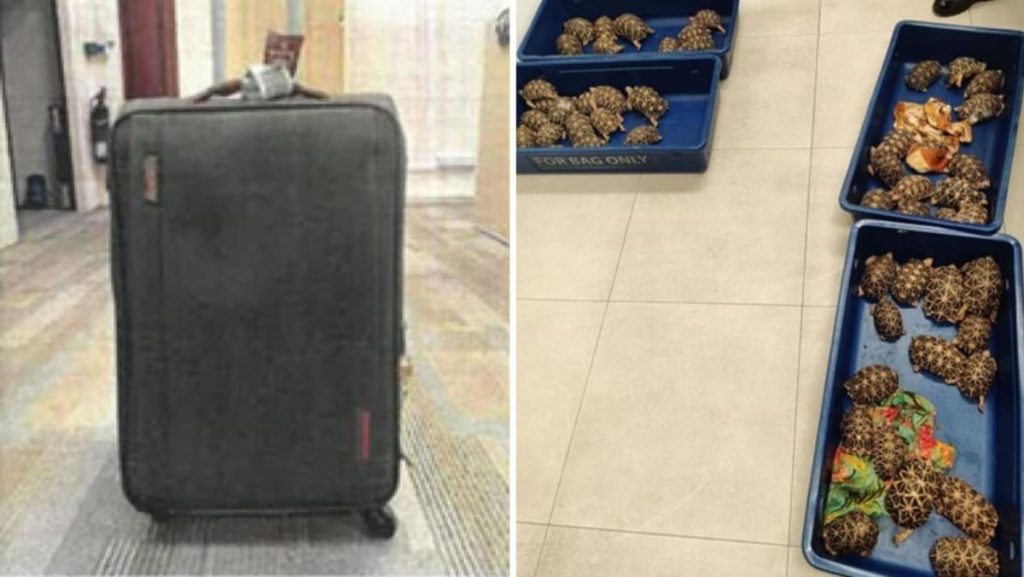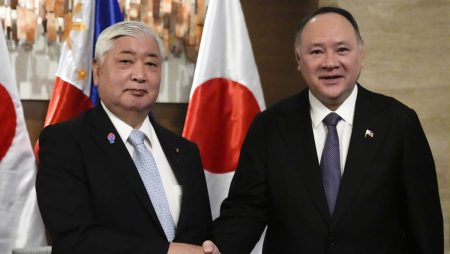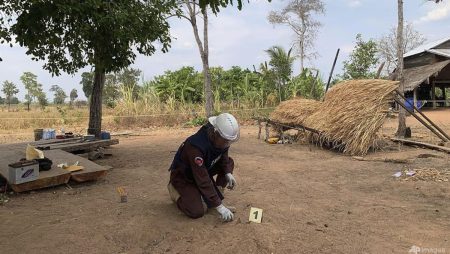The illegal wildlife trade, a global scourge that threatens biodiversity and fuels organized crime, casts a long shadow, even reaching the pristine efficiency of Singapore’s Changi Airport. In August 2023, this illicit underworld collided with the stringent laws of the island nation when Abdul Jaffar Haji Ali, an Indian national transiting through Singapore, was apprehended with a precious and imperiled cargo: 58 Indian star tortoises concealed within his luggage. This attempted smuggling operation, thwarted by vigilant authorities, highlights the persistent challenges in protecting endangered species and underscores the need for unwavering enforcement of international wildlife regulations.
Abdul Jaffar’s journey began in Chennai, India, and was intended to culminate in Jakarta, Indonesia. However, his illicit itinerary was abruptly halted during his layover in Singapore. As his luggage passed through the meticulous screening process conducted by Immigration and Checkpoints Authority (ICA) officers, an anomaly was detected. Upon closer inspection, the officers unearthed a disturbing discovery: a cloth bundle within a soft suitcase, harboring the 58 endangered tortoises. This prompted an immediate referral to the National Parks Board (NParks), the agency responsible for wildlife conservation and enforcement in Singapore, to initiate a thorough investigation into the matter. The tortoises, meanwhile, were seized and placed under the protective care of the Centre for Wildlife Rehabilitation, where they could receive necessary medical attention and be assessed for their overall health and well-being.
The Indian star tortoise, scientifically classified as Geochelone elegans, holds a precarious position in the natural world. Designated as a highly endangered species under Appendix I of the Convention on International Trade in Endangered Species of Wild Fauna and Flora (CITES), this remarkable reptile faces the imminent threat of extinction if the illegal trade in its kind is not drastically curbed. Appendix I, the highest level of protection under CITES, prohibits all international commercial trade in listed species. Abdul Jaffar’s actions, therefore, constituted a grave violation of international law and a direct affront to global conservation efforts.
The subsequent veterinary examination of the confiscated tortoises painted a grim picture of their ordeal. The conditions in which they were transported were unequivocally deemed inhumane and in violation of the International Air Transport Association (IATA) guidelines for the safe and humane transport of animals. Confined within a soft suitcase, lacking adequate ventilation and subjected to potential crushing forces from other luggage, the tortoises endured unnecessary suffering, highlighting the callous disregard for their welfare that often characterizes the illegal wildlife trade.
The veterinarian’s report detailed the multiple ways in which the transport conditions fell short of IATA standards. The suitcase, being soft-sided, lacked the structural integrity to protect the tortoises from the weight of other luggage, posing a significant risk of crushing injuries. The absence of ventilation holes created a stifling environment, depriving the tortoises of fresh air and exposing them to the dangers of suffocation, heat stress, and hypothermia. The sheer number of tortoises crammed into the confined space exacerbated their suffering, further increasing the risk of suffocation and heat stress. Finally, the suitcase’s lack of proper labeling compounded the risks, as mishandling during transit could have easily resulted in further stress and injuries to the vulnerable reptiles.
Tragically, one of the tortoises succumbed to the harsh conditions of its journey, a stark reminder of the devastating consequences of the illegal wildlife trade. While the deceased tortoise showed no outward signs of injury or disease, it was determined to be severely underweight. This finding, coupled with the fact that 22 other tortoises were also found to be thin, underscores the neglect and deprivation they experienced during their illegal transport. The remaining tortoises, although deemed to be of acceptable weight, undoubtedly suffered from the stress and trauma of their ordeal.
The legal proceedings against Abdul Jaffar swiftly followed. His blatant disregard for Singapore’s wildlife protection laws was evident in his lack of a valid permit from the director-general of wildlife trade control, a prerequisite for importing any CITES-listed species into the country. On December 10, 2023, Abdul Jaffar was convicted of illegally importing a scheduled species into Singapore and sentenced to 16 months in jail, a punishment that reflects the seriousness of the crime and serves as a deterrent to others who might contemplate engaging in similar illegal activities.
This case serves as a stark illustration of the multifaceted challenges in combating the illegal wildlife trade. From the source countries where these animals are poached to the transit points and final destinations, a complex web of criminal networks facilitates this lucrative but destructive trade. The vigilance of authorities like the ICA and the dedicated work of organizations like NParks are crucial in disrupting these networks and protecting endangered species from exploitation. The 16-month jail sentence handed down to Abdul Jaffar sends a strong message that Singapore will not tolerate such crimes and is committed to upholding its international obligations under CITES. This case also underscores the need for continued international cooperation and public awareness to effectively combat the illegal wildlife trade and safeguard our planet’s precious biodiversity.










